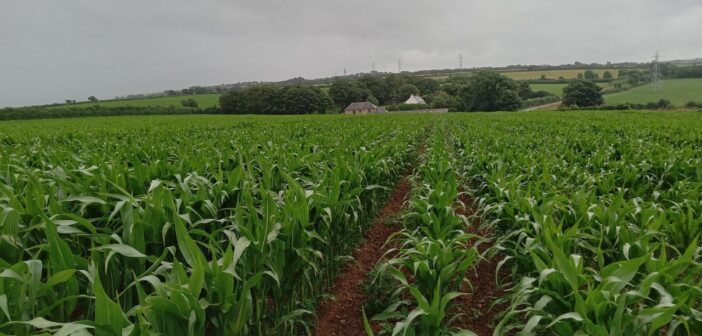OF MAIZE, BIOFUEL AND DAMAGING SOILS:
A lot of maize is being harvested around the Sid Valley – much of which will be used as biofuel – which raises all sorts of issues:
One concern expressed by both the Soil Association and Committee on Climate Change is the practice of growing crops for the production of energy (it must also be noted that the benefits of biomass as a carbon neutral energy source are disputed). The key concerns are not only that land used for energy biomass ought to be used for food production, but that the most common energy crop – maize – causes significant damage to soils when inappropriately managed. In the absence of any effective regulation on the growing of maize, and in light of the public subsidies available for renewable energy which incentivises its cultivation, significant concern has been expressed that this is a practice which urgently needs to be reviewed.
Last year the government announced its new ‘biomass strategy’.
And yet across the political spectrum, there has been scepticism about the wonders of biomass. As George Monbiot said back in 2014, in growing maize for biogas, the crop that does most damage to the soil is being specifically exempted from the rules. As Conservative Home said at the time, George Monbiot says defend British soil and crackdown on subsidy junkies: how’s that for a Conservative agenda? And as arch-climate sceptic Matt Ridley noted:
Anaerobic digestion: a lucrative way of subsidising farmers (yet again) to grow perfectly good food for burning instead of eating. Contrary to myth, nearly all the energy comes from crops such as maize (once fermented into gas), not from food waste. Expensive.
OF MAIZE, RUN-OFF AND POLLUTING RIVERS:
When it comes to the effect of growing maize on our water systems, the Soil Association back in 2015 was warning about “RUNAWAY MAIZE – subsidised soil destruction”:
Maize crops leave soil exposed during much of the growing season. Maize is usually harvested late in the year when soils are often wet, so with heavy rain, water runs off the surface of compacted and damaged fields, polluting waterways with pesticides and nutrients, and causing floods.
The Tillage and Soils website this week is looking to help rivers by cutting plough use in maize trials:
In the UK, maize is typically a plough-dependent crop as it needs a fine seed bed to establish and is easily outcompeted in its early growth stage. But this heavy ploughing can lead to degraded and compacted soils that risk polluting rivers via run-off.

Working with the Farm Net Zero project in Cornwall, farmers are leading an Innovative Farmers field lab testing a strip-till approach, where the top layer of soil is disturbed in strips, rather than full immersion ploughing of the entire field. So far, this approach has not negatively impacted yields, even having a positive impact in some cases, while reducing fuel and machinery costs, and boosting soil health.
Photo: Tillage and Soils – best practice crop establishment
…
